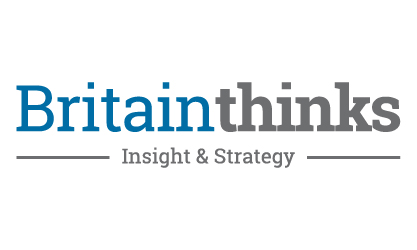
How do people start the journey using credit?
LONDON / AGILITYPR.NEWS / December 05, 2022 / The latest wave of our Cost of Living (CoL) Diaries research* tells us almost all of the public are concerned about the rising cost of living. 90% say they are concerned about rising costs, and this figure has remained consistent since March 2022. It’s the public’s number one concern, and it’s persistent. And that won’t be surprising to many of us – everything from Twitter threads about the price of a pint, to holding out on the heating, to decisions to keep Christmas meaningful but inexpensive this year all speak to these high levels of concern about the rising cost of living.
In this context, it has never been more important to understand how people think about, access and use credit. We know credit can be a lifeline, especially at the moment, alleviating the stresses of hiking prices and shrinking wages. At the same time, it can also start to become the cause of that stress. Consumer experiences of problem debt and credit reliance are well documented, but how do people actually start the journey using credit? What role do unsecured and new forms of borrowing play? How do behaviours evolve once on that journey? And crucially, are there any harms that could be avoided?
Earlier this year*, we worked with the Financial Services Consumer Panel to explore these important questions. We heard from 40 people who were all in the early stages of using credit (those who took out their first product in the past three years, or those who have just one or two products). Their borrowing takes many forms, from informal lending between friends and family, using buy-now-pay-later products to fund online shopping, credit builder cards to improve their credit rating, peer-to-peer lending to see people through to the end of the month, or borrowing from a loan shark as a last resort.
Across this broad sample, we found different ‘typologies’ of early credit users, who all had different mindsets, behaviours and attitudes when making the decisions to take out products.
The findings that really got us thinking…
- Credit is seen as a ‘helping hand’, and very few described their credit as debt. Early credit users distanced themselves from debt, using this to describe people in more ‘extreme’ situations than their own. This poses some important questions: does it matter if people don’t associate their credit with ‘debt’? If debt isn’t the mental model through which they view credit, does this mean consumers could take on more than they can afford? What role, if any, does the financial services sector have in helping consumers understand they are taking out debt, check whether they can afford it, and support customers to make it work for them?
- Borrowing is being normalised. Human nature means we’re always comparing ourselves to others – this isn’t anything new! But the cost of living means that consumers feel everyone around them is borrowing to cope with rising costs. This makes consumers feel their own borrowing is normal. While access to credit is definitely important right now, how can responsible credit be encouraged? Who, if anyone, has a role in supporting these behaviours and practises?
- The line between essential and non-essential spending is blurred. This research, as well as our wider work on the Cost of Living Diaries (conducted across 2022), tells us that people aren’t willing to cut back on the ‘things that make life worth living’. This is even when it could objectively be seen as ‘non-essential’ – the weekly takeaway, days out with family or holidays. More than ever, in the context of Covid recovery and in light of rising costs, these ‘treats’ remain an important part of what it means to be happy and well. And, they are ‘making the cut’ when it comes to trade-offs around spending. Does or should credit have a role to play in simply helping people enjoy life and feel it is worth living? Or are there risks in this – especially if, as we note above, it becomes overly normalised?
These are just a few thoughts and questions we had doing this work, but the Consumer Panel set out their nuanced expert position in this research report. You can also follow this link for more information on our Cost of Living research.
*N.B. The BritainThinks Cost of Living Diaries have been conducted in multiple waves throughout 2022. Our work with FS Consumer Panel was conducted in March and April 2022.
About Us
About BritainThinks
BritainThinks is an insight and strategy consultancy, that works across the globe. We deliver attitudinal and behavioural insight to help our clients improve policy, delivery and communication using traditional and innovative methodologies. We put the people that matter most to your organisation at the heart of your thinking. BritainThinks won MRS Agency of the year in 2020, is an employee owned business and certified B-Corp company.
Contacts
Phoebe Ward
Research Lead
pward@britainthinks.comPhone: +44 (0)20 7845 5880
https://britainthinks.com